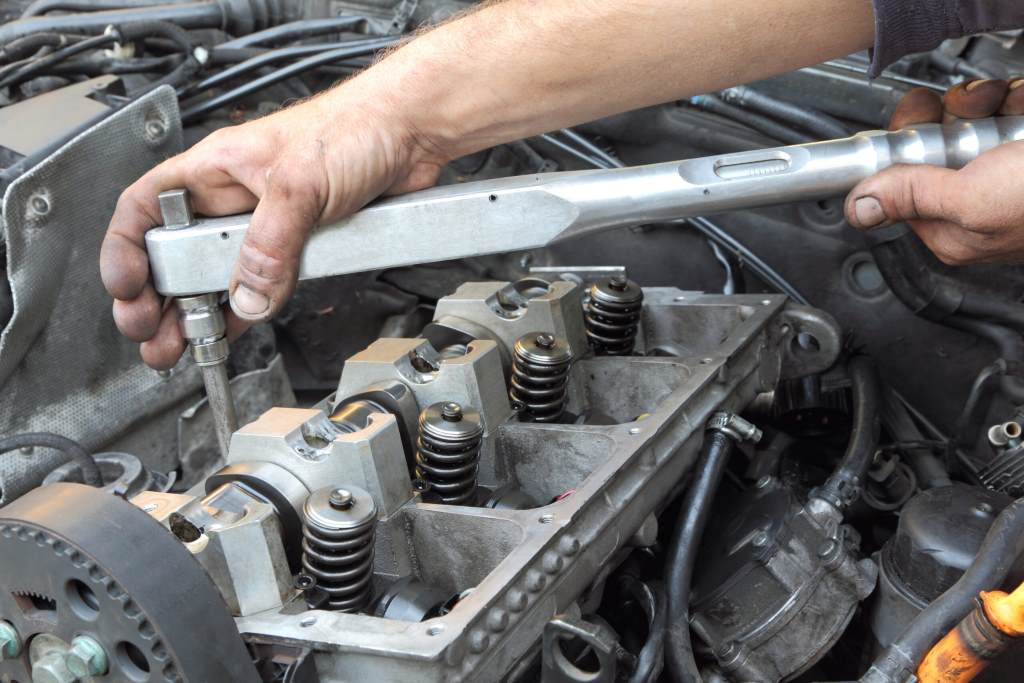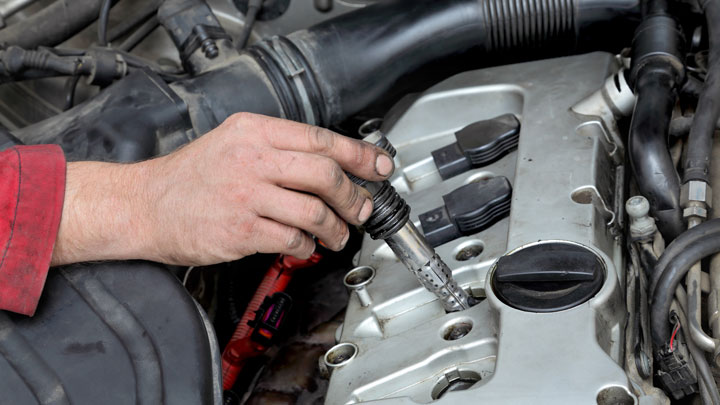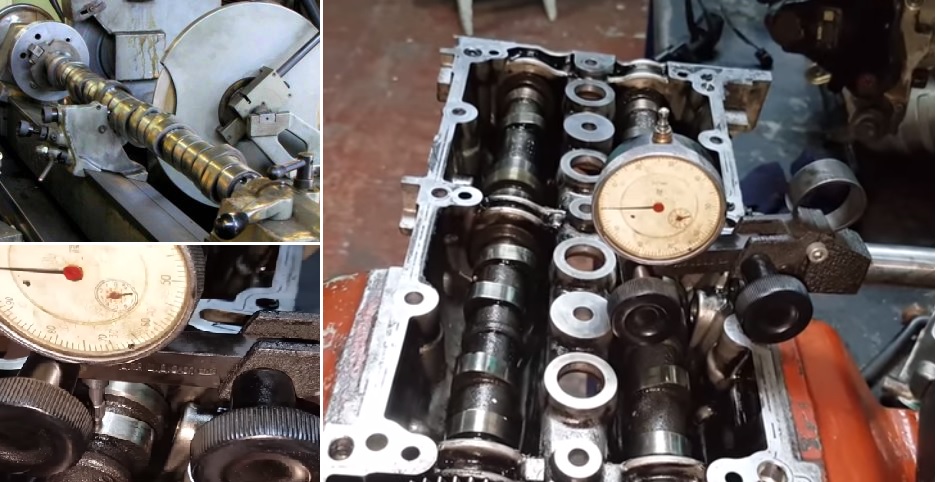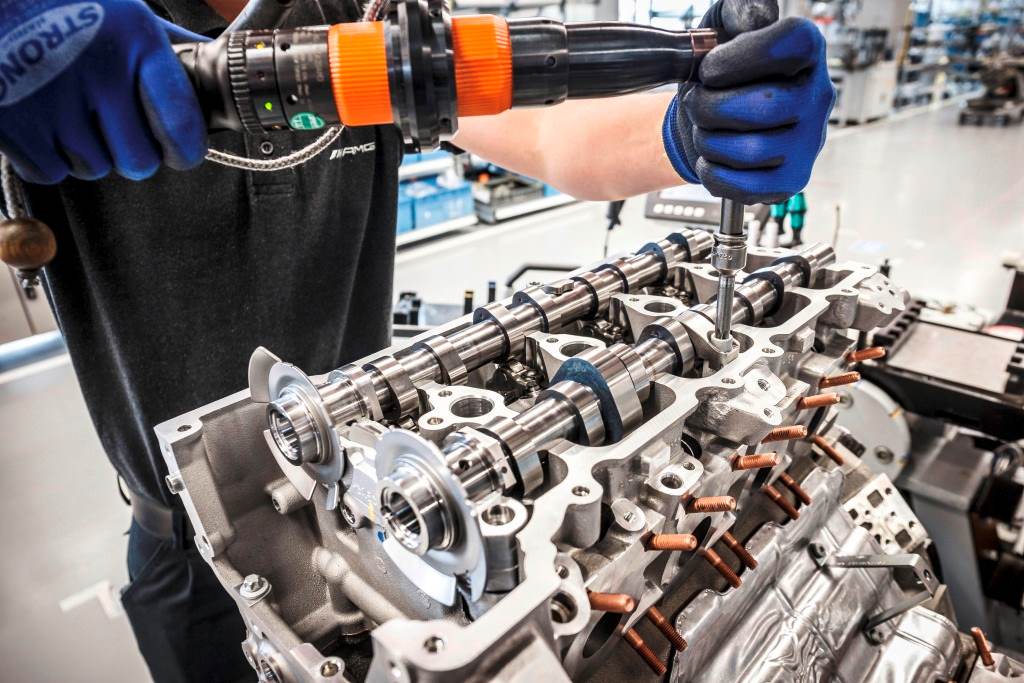The cost of camshaft replacement can vary depending on the make and model of the vehicle, the extent of the damage, and the labor rates in your area!
Contents
What Is The Cost of Camshaft Replacement
A camshaft is a crucial engine component responsible for controlling the opening and closing of the engine’s intake and exhaust valves. It regulates the timing and duration of these valve movements, which is essential for the combustion process and overall engine performance.
So with that much power in hands, broken or faulty camshafts can lead to serious and more severe issues if not dealt with properly.
Experts and professionals have discovered many ways to fix or take the camshaft in control again, but if the problems are too much to handle, the last straw can only be replacing this whole component.
The cost of camshaft replacement can vary widely depending on several factors, there’s a breakdown of the costs involved in camshaft replacement for your references:
Parts Cost
- Camshaft: The cost of a new camshaft can range from $100 to $500 or more, depending on the vehicle’s make and model. Some high-performance or specialty camshafts can be even more expensive.
- Timing Components: When replacing the camshaft, it’s often recommended to replace related timing components like the timing belt or chain, timing gears, and tensioners. The cost of these components varies but can range from $50 to $200 or more.
Labor Costs
Labor costs are a significant part of camshaft replacement. The exact labor cost depends on the complexity of the job, the accessibility of the camshaft, and the hourly rate of the mechanic or repair shop. Labor costs can range from $300 to $800 or more.
Additional Costs
Gaskets and Seals: It’s advisable to replace gaskets and seals associated with the camshaft, such as valve cover gaskets and camshaft seals. These components can cost around $20 to $50.
Machine Work
In some cases, the camshaft and related components may need machining or refinishing. This can add to the overall cost of the replacement.

Type of Camshaft
If you choose to upgrade to a high-performance or aftermarket camshaft, the cost can be significantly higher than a standard replacement camshaft.
Remanufactured vs. New
You have the option to use a remanufactured (remanufactured) camshaft, which is typically less expensive than a brand new one. Remanufactured camshafts are rebuilt to meet factory specifications and can be a cost-effective choice.
Taxes and Fees
Don’t forget to account for taxes, disposal fees, and any other miscellaneous charges that may apply in your area.
To get an accurate estimate for camshaft replacement, it’s essential to consult with a qualified mechanic or auto repair shop. They can provide you with a detailed quote based on your specific vehicle and the scope of the work required.
Additionally, consider the potential need for additional repairs or maintenance, as they may affect the overall cost of the job.
The Symptoms of A Bad Camshaft
A failing camshaft can manifest through various engine performance issues, leading to noticeable symptoms that can affect the smooth operation and efficiency of your vehicle.
When a camshaft is not functioning properly, one of the first signs might be the illumination of the check engine light on the dashboard, often triggered by irregularities detected by the camshaft position sensor.
Drivers may observe a decline in engine performance, characterized by reduced power, sluggish acceleration, and a lack of responsiveness. This can make the engine struggle to reach higher speeds and feel noticeably weaker.
Additionally, the engine might idle roughly, failing to run smoothly when the vehicle is stationary, which can lead to vibrations felt inside the cabin.
Engine misfiring is another common symptom, where the cylinders fail to fire in the correct order, causing the engine to run unevenly and possibly shake.

This issue can also lead to stalling or difficulties in starting the engine, with the engine potentially stalling when the vehicle comes to a stop and requiring multiple attempts to start.
The efficiency of the vehicle’s fuel consumption may also be compromised, with a noticeable decrease in miles per gallon. This is because the engine may need more fuel to maintain normal operation.
Related to this, a malfunctioning camshaft can affect the engine’s vacuum, essential for the proper functioning of components like power brakes and the HVAC system, leading to poor idling and reduced brake assist.
Unusual noises from the engine, such as ticking, tapping, or rattling, especially noticeable during acceleration or deceleration, can indicate issues with the camshaft.
In some cases, backfiring, identified by popping or banging sounds from the exhaust or intake, can occur, particularly if the camshaft’s timing is misaligned.
How Long Does It Take To Replace A Camshaft?
The time it takes to replace a camshaft in a vehicle can vary significantly depending on several factors, including the make and model of the vehicle, the complexity of the engine, the skill level of the mechanic, and whether any additional related components need replacement or adjustment.
On average, camshaft replacement can take anywhere from 4 to 6 hours of labor. However, it can take longer in certain cases.
Access to the camshaft
The location of the camshaft within the engine can greatly impact the ease of access. In some engines, the camshaft is relatively easy to reach, while in others, it may be buried deep within the engine, requiring more disassembly and labor to access.
Related components
If the replacement involves other related components like the timing belt or chain, timing gears, tensioners, or valve seals, the job will take longer. In such cases, the mechanic may recommend replacing these components for preventative maintenance.
Engine type
The type of engine, such as an inline-four, V6, or V8, can affect the time required for camshaft replacement. Engines with more cylinders may have more camshafts to replace.
Experience of the mechanic
The skill and experience of the mechanic performing the job can influence the time it takes. An experienced mechanic may complete the job more efficiently than a less experienced one.
Diagnostic time
Before replacing the camshaft, the mechanic will need to diagnose the issue, which can take time. Accurately identifying the problem is crucial to ensure that camshaft replacement is necessary.
Testing and calibration
After the replacement, the engine may need testing and calibration to ensure proper timing and performance.

FAQs on Camshaft Replacement
-
Is it necessary to replace other components along with the camshaft?
In many cases, it’s recommended to replace related components such as timing belts, timing gears, tensioners, and seals when replacing the camshaft to prevent future issues. These additional parts can impact the overall cost.
-
Can I save money by using a remanufactured camshaft instead of a new one?
Yes, using a remanufactured camshaft is often more cost-effective than purchasing a brand new one. Remanufactured camshafts are rebuilt to meet factory specifications and can offer good performance at a lower cost.
-
Does camshaft replacement come with a warranty?
Many repair shops offer warranties on parts and labor for camshaft replacement. Be sure to inquire about the warranty terms and coverage before proceeding with the repair.
-
Is camshaft replacement covered by car insurance?
Camshaft replacement is typically not covered by standard car insurance policies, as it is considered a maintenance and repair expense. However, if the damage to the camshaft is the result of an accident covered by your insurance, it may be included in the repair costs.
-
What happens if I postpone camshaft replacement after the mechanic recommends it?
Postponing camshaft replacement when it’s recommended can lead to further engine damage and potentially more expensive repairs down the road. It’s essential to address camshaft issues promptly to avoid additional complications.
-
Are there any aftermarket camshafts available, and how do their prices compare to OEM parts?
There are aftermarket camshafts available. Aftermarket options may be more affordable than OEM parts, but their quality and performance can vary!
Conclusion
Typically, the cost of camshaft replacement can range from $100 to $500 or more, and related timing components may add another $50 to $200. Labor costs range from $300 to $800 or more, depending on factors like the complexity of the job and the mechanic’s hourly rate.
Keep in mind that investing in timely camshaft replacement can help prevent further engine damage and maintain the longevity of your vehicle!



